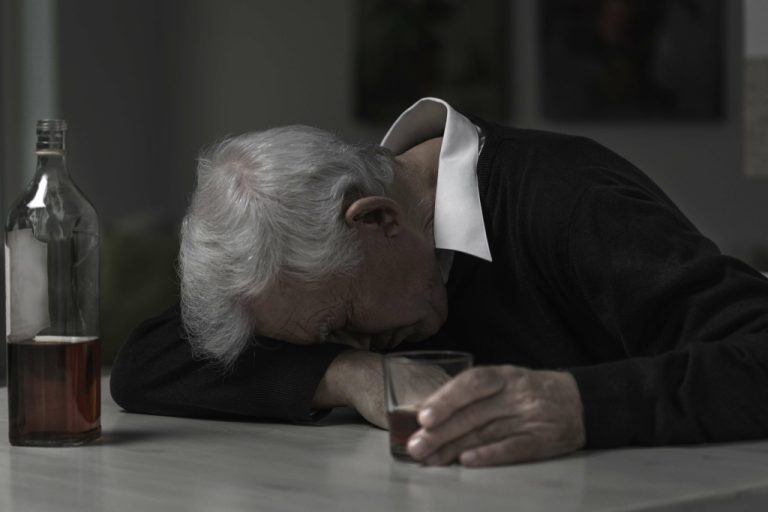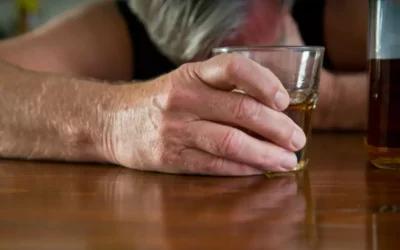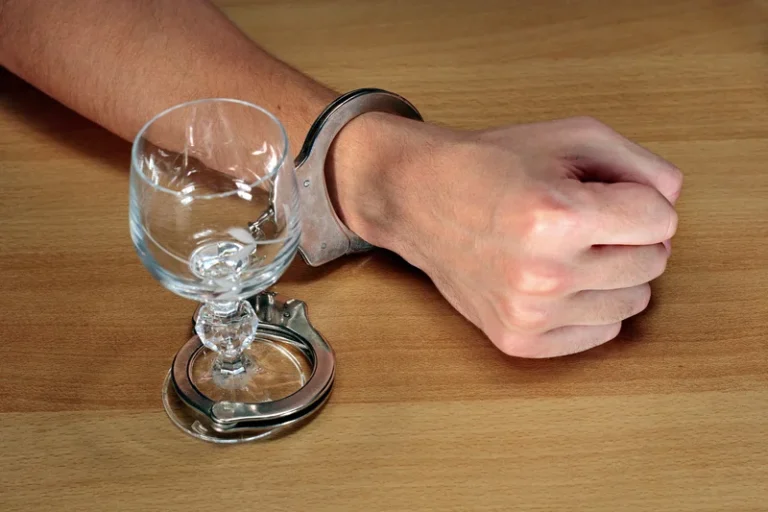Engaging in regular exercise during recovery alleviates anxiety, depression, and stress, contributing to sustained sobriety. Moreover, adopting a healthier lifestyle and building a supportive social network reinforce long-term recovery efforts. The action stage follows, involving active steps to stop drinking, such as seeking professional help, attending support groups, or adopting new coping strategies. Initially, in the pre-contemplation stage, individuals do not acknowledge their drinking as problematic and do not consider change.
Adopting a balanced lifestyle that includes regular physical activity and healthy nutrition enhances overall well-being and supports sustained recovery. Family intervention helps the family change their behaviors, roles, and perceptions. The changes help their loved one to be held accountable and support the family to stop solving problems for their loved one. The family often believes the loved one is a victim of mental health or a disease of addiction, and they will never accept help from an intervention. It is helpful during this stage for the family to understand the impact of the addiction and mental health both on their loved one and themselves. Not doing an intervention because you think they will say no is a feeble excuse.
The family can and will compromise the growth of the loved one, moving through the stages of change with enabling codependency, fears, anxiety, and unhealthy family roles. Anytime anyone or anything gets in the way of the intended patient seeing the need for change, it stops the forward progress. Families who brag that they don’t do anything to help their loved ones are equally interfering with the stages of change.
Maintenance and Long-Term Sobriety
- During this phase, Revive Health Recovery in Denver provides supportive therapies that can help individuals manage early cognitive challenges.
- This stage is a critical step towards achieving sobriety and lays the foundation for further treatment and rehabilitation.
- Discover how to help someone with drug addiction and navigate treatment options for a path to recovery.
- The most significant determining factor of success at the action and maintenance stage is the reason for going to treatment.
After detox ends, clients begin a rehab program that teaches them how to cope without alcohol and maintain sobriety. Embracing goal clarity can provide direction and motivation, distinguishing between short-term objectives and the broader vision of lifelong sobriety. This clarity supports individuals in making informed decisions that align with their recovery goals. Long-term recovery from alcohol addiction is a sustained process that involves continuous commitment and the implementation of various strategies to maintain sobriety. While the path to long-term sobriety can be challenging, it is achievable with the right support and approach.
Alcohol Recovery Timeline: What To Expect When You Quit Drinking
Although it is monumental getting to this stage, both you and your loved one are in early recovery. It is not uncommon for families to revert to codependency and enabling. Reverting to old behaviors by the family can hinder the 12-step and overall recovery process for their loved one. You may now wonder if they will still love you; we empathize and understand more than you know. There is a change plan at this stage, and now it is about taking action to follow through with the plan.
- When substance users believe they have it all figured out and stop their aftercare in the maintenance phase, they are headed for heartache.
- The family will keep believing in their loved one and themselves, or they will believe in the professionals.
- These stages underline that recovery is a non-linear journey, where individuals may cycle back to earlier stages as they navigate the complexities of their addiction.
- Whether you’re considering quitting alcohol, actively in treatment, or looking to sustain sobriety, knowing what to expect at each stage can improve your chances of long-term success.
- When someone is in pre-contemplation, there is a lack of awareness or denial of the addiction or mental health problem.
It is important to know the signs that develop during each stage to ensure your loved one seeks treatment for their addiction early on. The earlier they seek treatment, the better their chance of successful recovery. Doing a cost-benefit analysis to weigh the benefits of alcohol use against the cons and costs can sometimes help a person find clarity at this stage. Individuals may waffle back and forth between wanting and not wanting to change. They may decide, for instance, that they’re going to seek treatment sometime in the next six months but won’t set a definite date.
Interventions Can Help Move Families and Their Loved Ones Through the Stages of Change
When a family or their loved one takes action, there is a change taking place that can be noticeable. The change often occurs when actively engaged in intervention, treatment, and family recovery. In other words, help is required for families and people with a substance use or mental disorder to address the behaviors. Some family members struggle with believing the severity of the loved one’s addiction and mental health disorders. Mental block, codependency, and unhealthy and dysfunctional family roles are significant contributors to this struggle. An enabler in the family system may selfishly deny the severity of the problem to feed a hidden agenda of not wanting to lose their role as caretakers or having a purpose.
Person-Centered Care for Substance-Use Treatment
The length of the alcohol detox timeline varies widely depending on individual factors such as the person’s level of dependence, physical health, and presence of other medical or mental health conditions. Typically, the most intense phase of detox lasts up to a week, but withdrawal symptoms may linger for weeks or even months in some cases. Once acute withdrawal symptoms subside, many individuals enter the post-acute withdrawal phase. This stage can last several weeks and is marked by lingering symptoms such as anxiety, sleep disturbances, mood swings, and difficulty concentrating. While these symptoms are generally less severe than those experienced during the initial detox phase, they can still pose challenges and increase the risk of relapse.
How Long is the Alcohol Detox Timeline?
In 2020, more than 40.3 million people in the United States struggled with Substance Use Disorder (SUD). For every individual battling it, there are circles of friends, family members, and whole communities that feel its impact. Rehab is not just about stopping alcohol, it’s about making sure you stay supported long after the last drink. Infused with a naturally warm and empathetic demeanor, Kathryn leverages her enduring enthusiasm for behavioral health and diverse therapeutic modalities in the realm of recovery.
The whole picture is important, and just as important is what pathways of recovery they think will work for them. Meir carries forward a legacy of dedication from generations of medical professionals and educators as he guides the Wellbrook Recovery team. His journey began years ago when he assumed a leadership role in an addiction treatment program, igniting a profound passion for mental health and addiction recovery that continues to shape his life. No, alcohol recovery does not necessarily require complete abstinence for all individuals.
Explore vibrant alternatives to drinking alcohol, redefine your lifestyle, and thrive in sobriety. Explore effective cures for heroin addiction, from therapies to support systems for lasting recovery. Discover its effectiveness and applications for positive treatment outcomes. Dive into average age of substance abuse statistics, understanding onset, gender differences, and prevention. Both perspectives highlight the interconnectedness of personal circumstances and the recovery process, emphasizing the necessity of tailored support systems. Additionally, the Hierarchy of Needs Perspective emphasizes the importance of addressing basic needs before achieving self-actualization.
Professional treatment significantly boosts the success rate of recovery. Entering a structured program allows individuals to work through detox in a controlled environment, ensuring the best management of withdrawal symptoms. Furthermore, therapeutic sessions provide tools to cope with addiction and self-destructive behaviors. In the action stage, the focus is on actively changing behavior to overcome addiction.
This can be a harsh realization because it involves admitting something very personal and painful. A strong support system can be a powerful force in helping someone maintain sobriety, but recovery is ultimately their journey. Offering consistent encouragement while respecting their independence allows them to regain control over their life. Scientific research underscores the effectiveness of these treatments.
Once he or she has determined a course of action, they’re ready for the next step. At the three-to-six-month mark, the brain continues to show progress in healing damaged neural pathways. Neuroplasticity—the brain’s ability to reorganize itself and form new connections—plays a major role in this phase, enabling individuals to gradually regain more complex cognitive functions. Memory recall, reasoning abilities, and executive functions often improve, but they may still fluctuate as the brain adjusts.
Our personalized addiction treatment programs apply evidence-based treatment with compassion for you and your specific needs. Sustained sobriety is the ultimate goal of any addiction treatment program. Achieving this takes hard work, and it’s not always clear how to do it. These five tips will help you or someone you care about stay sober during each of the stages of recovery. During the maintenance phase, a recovering alcoholic applies the tools they learned in treatment and enjoys the benefits of being sober.
While the physical craving for alcohol is reduced through medical intervention, and psychological dependence is managed with therapy, the potential for relapse remains a concern throughout a person’s life. Long-term sobriety requires continuous commitment and management, and some face challenges with triggers, cravings, or stress that lead to a relapse. The evaluations that support alcohol recovery include comprehensive assessments conducted by medical and mental health professionals to identify the severity of addiction and any co-occurring disorders. These evaluations involve clinical interviews, physical exams, psychological screenings, and lab tests. Tools like the AUDIT (Alcohol Use Disorders Identification Test) and DSM-5 diagnostic checklists help inform treatment planning and track recovery progress. A study “Relapse by alcohol abusers” by R W Pickens, et al., published by NIH, indicates that a significant proportion of individuals experience a return alcoholism recovery stages to alcohol use after attempting to maintain sobriety.







